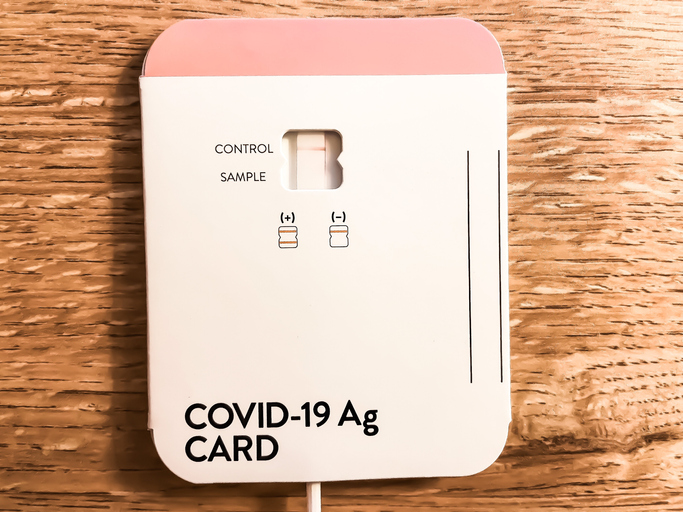
Source: Catherine McQueen / Getty
Everyone remembers the trauma of trying to get a COVID-19 test at the start of the pandemic. Simply determining the right website to make an appointment felt like navigating a complicated maze. One site would send you to another that would send you back to the first. The next available appointment wasn’t for another week at a location miles away. It was a nightmare. Then you’d have to go stand in a long line of possibly sick individuals and have a stranger cram a swab up your nose or watch you cough into a tube. Nobody misses those days. Now that at-home COVID-19 tests are widely available, the public has become spoiled with an easier, more pleasant method for testing. In fact, the public has become so keen on picking up these tests that Reuters reports major pharmacies have even had to limit the number of tests a consumer can purchase.
CNN reports that scammers are cornering the COVID-19 test market. They’re doing it through fake pop-up tents offering rapid tests, and they’re doing it through at-home tests. Buying from these scammers can put not just your money at risk but also your private information. Scammers are in the at-home COVID-19 test game. Here’s what to know.
Unsolicited Texts Offering Free At Home Covid Tests
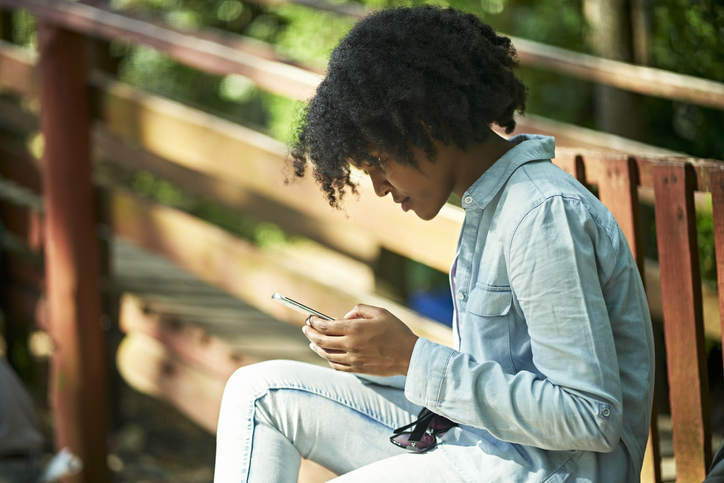
Source: xavierarnau / Getty
Scams in the form of unsolicited texts are on the rise. Truecaller’s Scam and Spam report of 2021 says that 59 percent of Americans received a spam text or call pertaining to COVID-19 last year. The report also states that 59.4 million Americans fell victim to some sort of phone scam between mid-2020 and mid-2021. If any unsolicited text claims to lead to a free COVID-19 test and asks you to click a link, do not do it. It could introduce a virus into your phone that collects your data, or it could take you to a form where you fill out personal data for a scammer.
Calls From “Healthcare Providers”
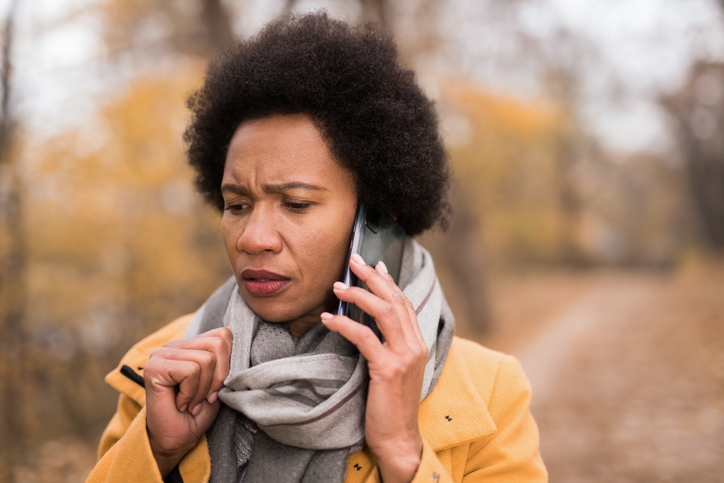
Source: DjelicS / Getty
This is another phone scam pertaining to fake COVID-19 tests. You receive a phone call from someone claiming to work for the city health department, or even your health insurance company. They notify you that you’ve been approved to receive a delivery of free at-home COVID-19 tests. You just need to provide some information for them to make the shipment. In some cases, they need your credit card “Just to put a hold on to initiate the delivery.” Hang up. Do not interact with these individuals. Neither someone working for the city or your health insurance company will call you and ask for this personal information.
Fake Websites
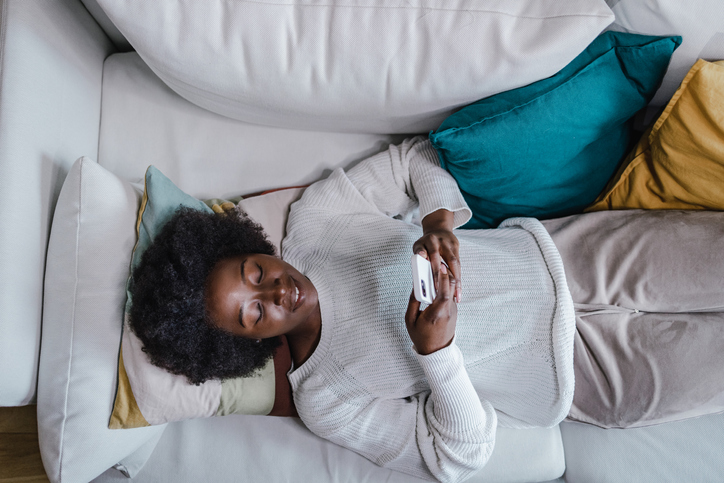
Source: Milko / Getty
If you were to look up at-home COVID-19 tests right now, you would encounter dozens of websites selling the kits. Some might even advertise that they’re offering an at-home COVID-19 test free with a purchase of another item. Some of these websites are fake. You give money to a scammer who at best sends you nothing and at worst steals your bank or credit card information. Scammers have become highly sophisticated and have created websites that look legitimate. Once you’ve given them your information, they can steal funds or even commit identity fraud. Do not purchase tests online from a retailer with whom you aren’t familiar.
Amazon Third-Party Fakes
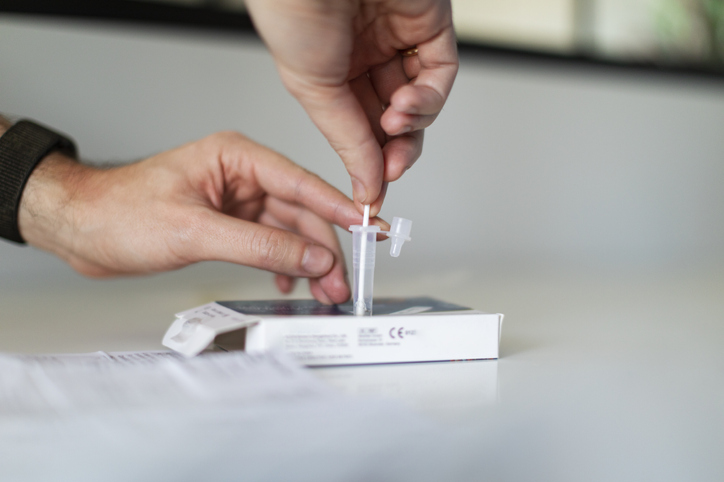
Source: yulkapopkova / Getty
Though Amazon is generally a trusted online retailer, there are fraudulent products sold on the popular platform. They might be packaged in boxes with the labels and logos from brands that you know and trust. Bloomberg reports that the rise of third-party sellers on Amazon has triggered the rise of counterfeit products and that Americans lose $54 billion to such products every year. In the case of counterfeit products on Amazon, you might never receive anything from the seller and struggle to get a refund. You might also receive a fake product that does not work, putting you at risk of unknowingly spreading COVID-19 because of a false negative.
Check the FDA Website
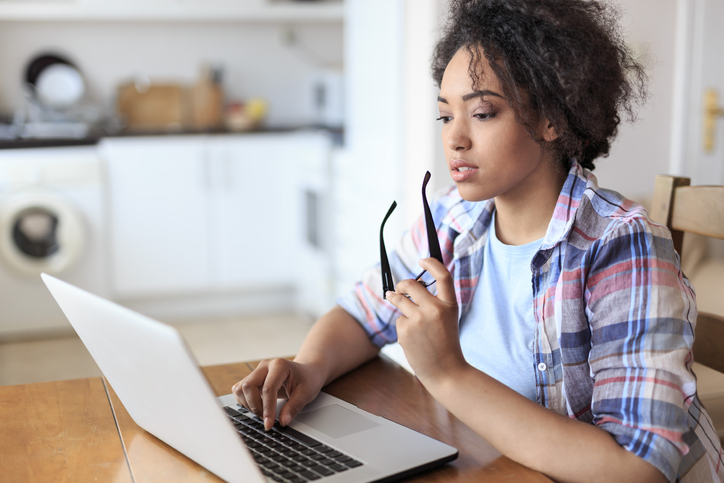
Source: valentinrussanov / Getty
There are some things you can do to protect yourself while scammers swarm the at-home COVID-19 test market. Check the FDA website for a list of companies selling fraudulent coronavirus-related products. These range from products claiming to treat COVID-19 to claiming to test for it. Here you can also report a website that you believe to be selling fraudulent products. The site additionally publishes regular reports on current scams that are circulating, making it a useful resource to frequently check in on.
Research the Company
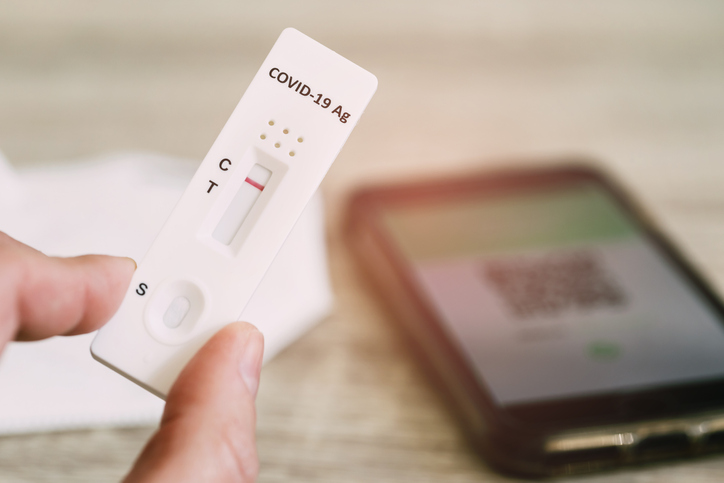
Source: Cris Cantón / Getty
If you are ever unsure about a website selling COVID-19 testing kids, Google the name of the company plus the word “scam”, “fake”, “fraudulent” or “spam.” In some cases, you’ll instantly find forums on which sellers complain about the company selling fake products or stealing their information. Though the wait can be long or the prices might be higher, purchasing from verified sellers like CVS, Walmart or other large pharmacies is the safest way to acquire legitimate at-home COVID-19 tests. It’s also worth noting that President Biden approved one billion at-home COVID-19 tests to be given for free to American households.









